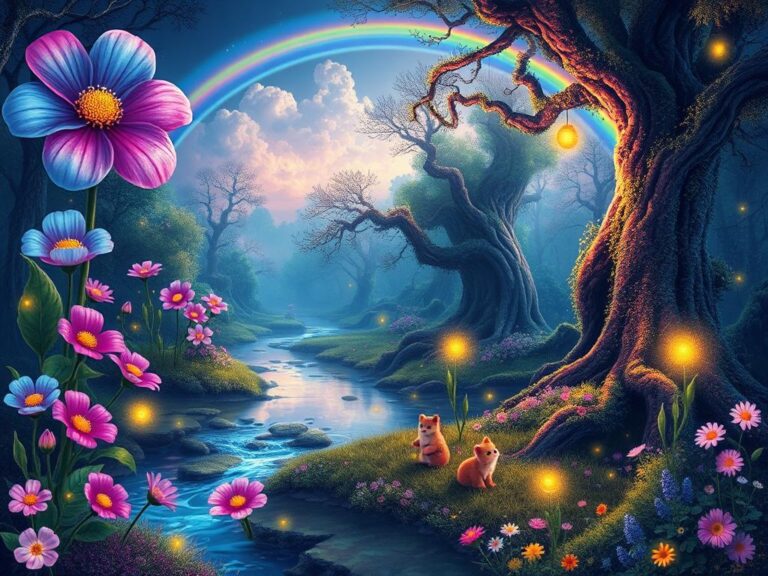Dark Jokes: For Those Who Dare to Laugh
Dark Jokes: For Those Who Dare to Laugh
Dark jokes are an intriguing form of humor that often pushes the boundaries of what is socially acceptable.
They provide a twisted sense of comedic relief, inviting laughter even in the face of life’s darker realities.
In this article, we will delve into the fascinating world of dark jokes—what they are, why we love them, and how they can be a cathartic experience.
With an array of examples and insights into the psychology of humor, we aim to showcase humor’s ability to bridge gaps and foster connection even when the topics are heavy.
So, buckle up for this roller coaster ride of humor, and let’s explore why dark jokes resonate with many while ensuring we access this humor responsibly and respectfully.
What Are Dark Jokes?
Dark jokes, often identified as black humor, typically address topics that are serious, taboo, or distressing.
They often poke fun at subjects like death, illness, or social injustices with the aim of lightening the mood surrounding these heavy topics.
The fine line in dark humor lies in its intent; while it may come off as offensive to some, it can be a coping mechanism for others, providing relief from societal taboos.
As Friedrich Nietzsche noted, “He who has a why to live can bear almost any how.”
For many, finding laughter in life’s brutal realities creates a psychological buffer, enabling them to process complex emotions.
The Psychology Behind Dark Humor
The allure of dark humor can often be traced back to psychological relief.
According to several studies, engaging with dark humor helps individuals confront their fears and anxieties.
One significant study conducted by researchers from the University of Virginia showed that individuals who enjoyed dark humor scored higher on measures of psychological resilience.
This suggests that those who can laugh at darker subjects may have better coping mechanisms when addressing discomfort and pain.
Moreover, dark humor can serve as a bonding tool, creating a shared experience among individuals who recognize the absurdity within tragic contexts.
Examples of Dark Jokes
Here are a few classic examples of dark jokes:
- I have a joke about death, but it’s too grave.
- Why don’t skeletons fight each other? They don’t have the guts.
- They say laughter is the best medicine. That’s why I laugh in the face of danger… and then run away.
These examples illustrate the essence of dark humor—where stark realities are juxtaposed with lightheartedness.
Each statement makes a commentary on life’s more serious events while delivering a punchline that can instigate laughter.
Why Do We Find Dark Jokes Funny?
Understanding the appeal of dark jokes requires exploring our fundamental relationship with humor.
Humor serves several functions: it can relieve tension, offer social commentary, or bridge gaps in communication.
For individuals grappling with fears surrounding mortality or societal issues, dark jokes can create a necessary detachment from emotional pain.
This psychological distance allows individuals to examine fears or societal norms critically while still engaging in laughter.
The Ethical Implications of Dark Humor
When engaging with dark humor, it is essential to navigate the ethical implications carefully.
Not everyone appreciates this type of humor, particularly those who have experienced trauma related to the topics being joked about.
Therefore, it’s vital to understand the audience and context when sharing dark jokes.
In a light-hearted environment among friends who appreciate dark humor, jokes can be cathartic.
However, in sensitive or dissimilar settings, they may be met with rejection or offense.
Historical Context of Dark Humor
Dark humor has been present throughout human history, often surfacing during times of crisis.
During the Black Death in the Middle Ages, for example, jokes about mortality circulated widely as coping mechanisms.
Literature, theater, and even modern cinema continue to use dark humor to address challenging issues, often providing insight into society’s unspoken fears or stresses.
Famous comedians like George Carlin and Louis C.K. are well-known for theirs, and their work often reflects societal issues using dark humor to highlight absurdity.
As Carlin famously stated, “Just think of how stupid the average person is, and realize half of them are stupider than that.”
Harnessing Dark Humor Responsibly
While dark humor can serve as a coping mechanism, it’s crucial to harness it responsibly.
To engage with this form of comedy effectively, consider the following tips:
- Assess your audience: Be aware of who is around you and their experiences.
- Choose appropriate settings: Share dark humor in safe environments where laughter can be embraced.
- Emphasize the absurd: Focus on the ridiculous aspect of dark subjects instead of trivializing suffering.
By following these guidelines, you can engage with dark humor in a way that is respectful and considerate to those around you.
Famous Dark Jokes from Comedians
Dark humor has long been a staple in stand-up comedy.
Comedians like Anthony Jeselnik and Sarah Silverman have mastered the art of delivering jokes that tread the thin line between humor and offense.
“I have a great joke about procrastination, but I’ll tell you later.”
Jeselnik’s style emphasizes shock value, encouraging audiences to confront their perceptions of humor in dark contexts.
Similarly, Silverman explores social issues through a comedic lens that challenges preconceived notions.
Comparing Dark Humor to Other Humor Types
Dark humor is one facet of the diverse spectrum of comedy.
To better understand its function, let’s compare it to other humor styles:
| Type of Humor | Description |
|---|---|
| Dark Humor | Addresses taboo or serious subjects. |
| Slapstick | Focuses on physical comedy, often exaggerated. |
| Satire | Critiques societal norms and politics humorously. |
Understanding these distinctions aids in grasping the unique space dark humor occupies within comedy.
While it may induce discomfort, it also serves as a mirror reflecting deeper societal complexities.
Conclusion
Dark jokes offer a unique avenue for laughter, allowing people to explore serious subjects in a lighthearted manner.
While they are not for everyone, when shared responsibly, they can foster resilience and connection among individuals struggling with similar fears.
By examining the psychological elements of dark humor, we can better appreciate its role in our lives.
Whether as a coping mechanism or a means of social commentary, dark jokes remain an invaluable part of comedic expression.
FAQ
What are dark jokes?
Dark jokes, also known as black humor, are a type of humor that addresses serious, taboo, or distressing subjects in a lighthearted manner.
Why do people enjoy dark humor?
People often enjoy dark humor because it allows them to confront fears and anxieties in a more palatable way, creating a psychological buffer against distress.
Are there ethical concerns related to dark humor?
Yes, ethical concerns arise when dark humor may offend or harm individuals who have experienced trauma related to the topics being joked about.
How can I share dark jokes responsibly?
To share dark jokes responsibly, assess your audience, choose appropriate settings, and emphasize the absurdity of situations rather than trivializing suffering.
Dark jokes can indeed be a form of relief and laughter, but only when navigated with care and respect.
Feel free to share your thoughts, experiences, or questions about dark humor in the comments section below!







